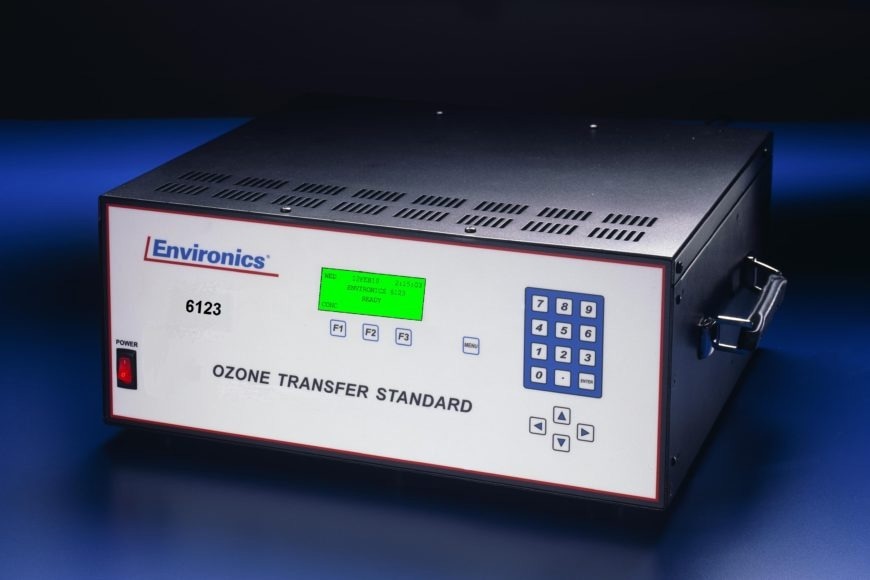Gas detectors and analyzers are used extensively in various applications, such as ensuring workplace safety, conducting scientific research, and monitoring the environment.

Image Credit: Environics, Inc.
Keeping gas equipment adequately calibrated is the only way to ensure that they are performing at their best – making gas calibration equipment essential.
This article elucidates the significance of gas calibration equipment and the frequency at which gas equipment should be calibrated.
A range of sophisticated technologies have been developed with the sole purpose of detecting and quantifying concentrations of various gases in different applications. These are all outlined below.
- Gas Detectors to Protect People From Gas Hazards in the Workplace
Fixed devices are commonly utilized to monitor specific fixed hazards, such as chemical processing equipment, whereas portable multi-gas detectors are essential early warning systems for workers who may encounter gas hazards during their work.1
The utilization of gas calibration equipment is crucial in ensuring personnel safety for these applications.
- Gas Analyzers for Research and Industry
Sensitive equipment is designed to accurately characterize and quantify gases for research and industrial applications. These devices utilize various technologies, including mass spectrometry or gas chromatography, to precisely analyze the constituents of gases.
Environmental gas monitors are primarily used to monitor pollutants. These monitors usually have automated sampling gas analyzers that record data over extended periods and offer varying precision levels.
Despite differences in sensor type or application, all gas monitoring devices share a common issue: they are susceptible to drift, which results in a loss of accuracy over time. Therefore, regular calibration of these devices using proper gas calibration equipment is necessary to ensure their effectiveness.
Gas calibration equipment is particularly critical for safety applications. However, even for other applications, relying on gas detection equipment without proper gas calibration equipment will eventually result in unreliable readings.
Certain types of gas detectors, such as electrochemical ones, are also prone to degradation.2 In such cases, gas calibration equipment is crucial, as even a low-level leak can sometimes cause sensor performance to deteriorate entirely without triggering an alarm.
Using the Correct Gas Calibration Equipment
Fortunately, gas calibration is usually a simple process to carry out.
The most common type of gas calibration equipment is a gas canister that contains a precisely prepared calibration gas standard, which the gas equipment can use as a reference. Several gas detector manufacturers also offer specialized gas calibration equipment designed explicitly for their products.
However, for applications that require calibration of multiple types of gas equipment or have variable calibration requirements, other types of gas calibration equipment can offer advantages.
Multi-gas calibration equipment offers additional control and precision by mixing calibration gas mixtures on demand.
Environics' Series 6100 is an example of such equipment that can automatically perform zero, precision, span, and multi-point calibrations using a range of gases.3
The Series 6100 features two high-precision mass flow controllers as standard, providing superior performance compared to other gas calibration equipment.
How Often Should Gas Calibration Equipment Be Used?
Gas detectors typically require calibration at least every six months for safety applications to ensure reliable performance. However, depending on factors such as exposure to adverse conditions (such as temperature, moisture, or low-level exposure to target gases) and the type of sensor, it may be advisable to calibrate more frequently than this.
For analytical applications, the frequency of using gas calibration equipment can vary from daily (e.g., time-of-flight mass spectrometers) to a few times a year (e.g., quadrupole mass spectrometers).
Ultimately, there are no hard and fast rules on how often to use gas calibration equipment. It is best to consult the manufacturer of your gas equipment for guidance specific to the equipment and use case.
Environics is a leading developer of gas calibration equipment suitable for demanding applications in both industry and research.

This information has been sourced, reviewed and adapted from materials provided by Environics, Inc.
For more information on this source, please visit Environics, Inc.